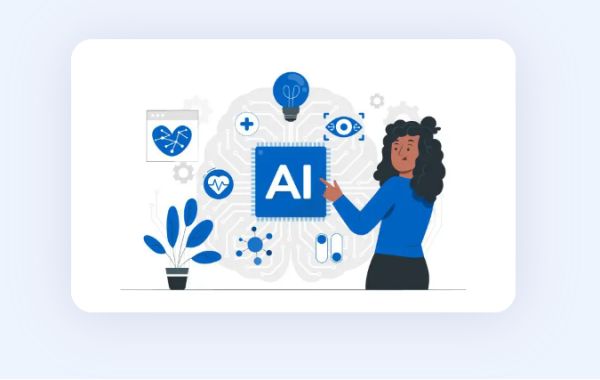In recent years, the integration of Artificial Intelligence (AI) in healthcare has sparked a transformative wave, revolutionizing the landscape of medicine. With its unparalleled capabilities in data analysis, pattern recognition, and decision-making, AI holds immense promise in improving patient outcomes, enhancing operational efficiency, and advancing medical research. In this comprehensive guide, we delve into the myriad benefits of AI in healthcare, exploring how this cutting-edge technology is reshaping the delivery of medical services and propelling us towards a healthier future.
Enhancing Diagnostic Accuracy with AI
One of the most significant advantages of AI in healthcare lies in its ability to enhance diagnostic accuracy. Through sophisticated algorithms and machine learning models, AI systems can analyze vast amounts of medical data with remarkable speed and precision. From interpreting medical images such as X-rays, MRIs, and CT scans to analyzing pathology slides and genetic sequences, AI-powered diagnostic tools can assist healthcare professionals in detecting diseases and abnormalities at an early stage. By providing timely and accurate diagnoses, AI helps clinicians devise personalized treatment plans, thereby improving patient outcomes and reducing the risk of misdiagnosis.
Streamlining Healthcare Operations
Beyond diagnosis, AI offers immense potential in streamlining various healthcare operations, optimizing workflows, and reducing administrative burden. Natural Language Processing (NLP) algorithms enable AI-powered chatbots and virtual assistants to interact with patients, schedule appointments, and answer inquiries, thereby enhancing patient engagement and satisfaction. Moreover, AI-driven predictive analytics tools can forecast patient admissions, allocate resources efficiently, and minimize waiting times, leading to enhanced operational efficiency and cost savings for healthcare institutions.
Personalizing Patient Care
AI-driven personalized medicine represents a paradigm shift in healthcare, moving away from the traditional one-size-fits-all approach towards tailored interventions based on individual patient characteristics. By leveraging patient data, including medical history, genetic makeup, lifestyle factors, and treatment responses, AI algorithms can generate actionable insights to guide clinical decision-making. From recommending personalized treatment regimens to predicting disease progression and recurrence, AI empowers healthcare providers to deliver targeted therapies that maximize efficacy and minimize adverse effects, ultimately improving patient outcomes and quality of life.
Accelerating Drug Discovery and Development
In the realm of medical research, AI is revolutionizing the process of drug discovery and development, expediting the identification of novel therapeutic targets and the design of innovative treatments. Through the analysis of vast datasets encompassing biological, chemical, and clinical information, AI algorithms can identify potential drug candidates, predict their safety and efficacy profiles, and optimize their molecular structures for enhanced potency. By accelerating the drug development pipeline and reducing the time and cost associated with bringing new drugs to market, AI holds the promise of addressing unmet medical needs and tackling complex diseases more effectively.
Facilitating Remote Monitoring and Telemedicine
The rise of telemedicine and remote patient monitoring has been further accelerated by advancements in AI technology, enabling healthcare providers to deliver care beyond the confines of traditional clinical settings. Wearable devices equipped with AI algorithms can continuously monitor vital signs, detect anomalies, and alert healthcare professionals to potential health issues in real-time. This remote monitoring capability not only allows for early intervention and proactive management of chronic conditions but also enhances patient convenience and accessibility to healthcare services, particularly in underserved or remote areas.
Conclusion: Embracing the AI Revolution in Healthcare
In conclusion, the integration of Artificial Intelligence (AI) in healthcare holds immense promise in transforming the way we diagnose, treat, and manage diseases. From enhancing diagnostic accuracy and streamlining healthcare operations to personalizing patient care and accelerating medical research, AI is revolutionizing every aspect of the healthcare ecosystem. As we embrace this AI revolution, it is essential to harness its potential responsibly, ensuring patient privacy, data security, and ethical considerations are prioritized. By leveraging the power of AI in healthcare, we can unlock new possibilities, improve patient outcomes, and usher in a future where healthcare is more accessible, efficient, and personalized than ever before.








